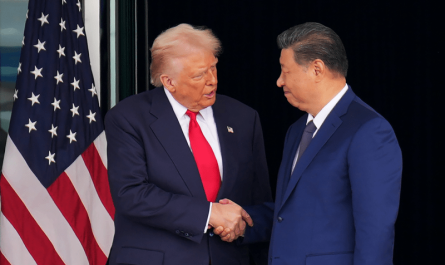The United States is once again facing the threat of a government shutdown. Congress and the White House have so far failed to reach an agreement on the federal budget, raising the possibility that large parts of the government may soon be forced to suspend operations. This political standoff in Washington is already affecting investor sentiment and global financial markets.
What is a government shutdown?
A shutdown occurs when Congress fails to pass either a full budget or a temporary funding measure. In such cases, many federal agencies must halt most of their activities.
- Essential services (such as the military, law enforcement, and emergency healthcare) continue to operate, often with employees working without immediate pay.
- Non-essential agencies suspend operations, and employees are placed on unpaid leave until funding is restored.
This means that national parks, museums, regulatory offices, and other agencies may close their doors, while hundreds of thousands of federal workers are affected.
What could happen this time?
The White House budget office has already instructed agencies to prepare mass layoff and furlough plans in case funding lapses. Reports suggest that, for example, up to 41% of employees at the Department of Health and Human Services could be furloughed, while the Centers for Disease Control and Prevention (CDC) would suspend most of its activities.
In addition, the publication of critical economic data, such as employment figures and inflation reports, would be delayed, leaving the Federal Reserve with less information to guide monetary policy decisions.
Impact on financial markets
The looming shutdown is already weighing on markets:
- Stock markets have become more volatile as investors wait for political clarity.
- The US dollar has weakened against major currencies, reflecting uncertainty.
- Gold surged above $3,800 per ounce, reaching a historic high as investors flock to safe-haven assets.
- US Treasury bonds are in higher demand, pushing yields lower as investors seek security.
Economic consequences
Economists warn that every week of a shutdown could reduce US GDP growth by 0.1–0.2 percentage points. While this might seem modest, a prolonged funding gap could significantly hurt economic momentum, disrupt federal programs, and undermine business confidence.
Companies that rely on federal contracts—especially in defense, infrastructure, and research—would face delayed payments and stalled projects, adding pressure to the broader economy.
Conclusion
The United States once again stands on the brink of a political crisis that threatens to paralyze federal institutions and shake global markets. A shutdown would affect federal employees, contractors, businesses, and financial markets worldwide. The key question now is how quickly Congress and the White House can reach a compromise to avoid prolonged damage.



